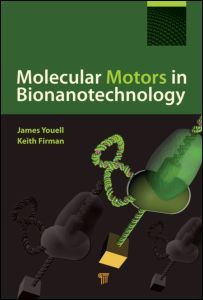Molecular Motors in Bionanotechnology
Auteurs : Firman Keith, Youell James

Biological molecular motors provide most cells with the dynamic systems required for their day-to-day existence. Examples occur in even the simplest organism (e.g. a bacteria virus), and the range of tasks that they carry out is vast. Over the last few years, there has been a large increase in the study of these motors, and it is becoming apparent that many motors will find uses in either bionanotechnology or synthetic biology.
Molecular Motors in Bionanotechnology describes a wide range of molecular motors, ranging from chemical motors to biological motors, in a manner that updates, or reviews, both classification of the type of motor and the grouping into families. Many techniques have evolved to study and characterise molecular motors at the single-molecule level (e.g. use of molecular tweezer devices for single-molecule studies). The text introduces the reader to the concepts and benefits of these techniques. In addition, it looks at the structural information and how this helps understand function and, finally, how some of these motors are being used or may be used in the future as part of a synthetic biology approach to building devices and sensors.
James Youell has been working as a research fellow since 2004 at the University of Portsmouth on the design of a high-throughput single-molecule drug development tool utilising molecular motors. Through the development of this system, he has worked alongside a pan European research team, incorporating cutting-edge experimental tools, to build the various biological and synthetic components required. Dr Youell has published a number of papers on the development of such synthetic biology devices and given invited seminars on the subject.
Keith Firman is now retired from the University of Portsmouth, where he was reader in Molecular Biotechnology. He investigated the properties of type I restriction-modification systems. This led to the coordination of three consecutive European grants worth, in total, in excess of €4,500,000 to develop an electronic device for biosensing using single-molecule molecular motors. Dr Firman has published more than 50 papers and was also invited to participate in a number of international road-mapping exercises in nanotechnology.
Date de parution : 03-2013
Ouvrage de 300 p.
15.2x22.9 cm
Thèmes de Molecular Motors in Bionanotechnology :
Mots-clés :
Light Intermediate Chain; DNA Origami; Mode of Activity of Molecular Motors; ADP Molecule; Chemical Motors; ATP Hydrolysis; Towards Bio nanotechnology; DNA Translocation; Biological Motors that Produce Linear Motion; ATP Molecule; Biological Motors that Produce Rotary Motion; ATP Binding; DNA Hydrolysis; Optical Tweezers; Cytoplasmic Dynein; Axonemal Dyneins; Arginine Finger; DNA Substrate; PDB Code; Dynein Heavy Chain; ATP Synthase; DNA Junction; Molecular Motors; Dynein Complex; DNA Shape; DNA Track; Helix Turn Helix Motif; Myosin Heavy Chain; Flagella Motor



